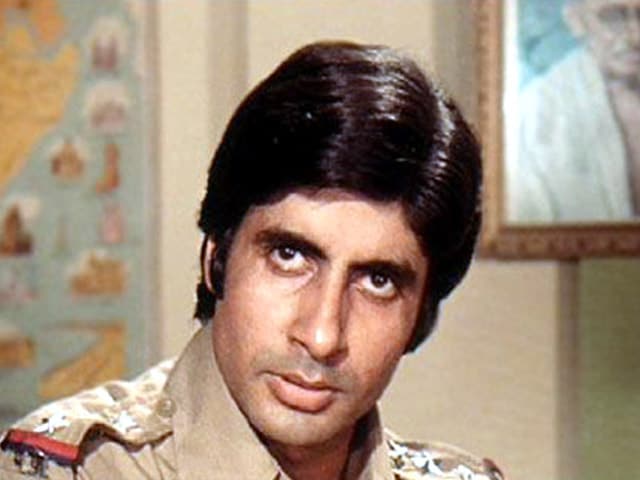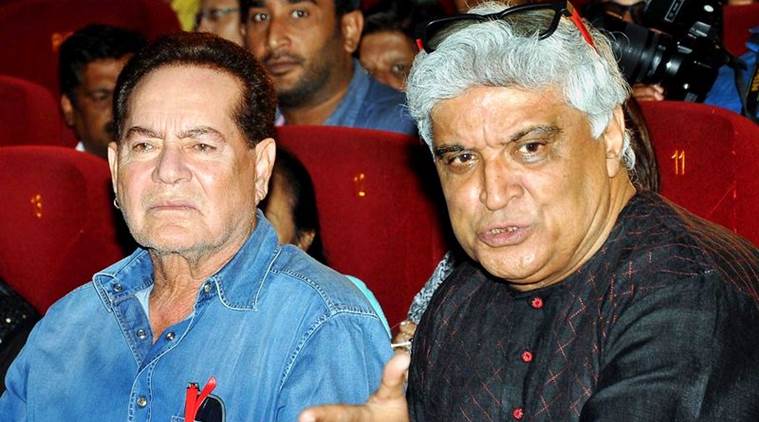Anti-establishment, dangerous, prone to crime...yet audiences loved the Angry Young Man
8:17 AM
Posted by Fenil Seta

Recent south films have shown that the brawny, alpha male hero is alive and kicking (some butt)! While these films break records and rake in hundreds of crores, Bollywood seems to have given up on evergreen movie tropes. Yet, kasam paida karne waale ki, it was Hindi cinema that introduced the most enduring potboiler themes – the Angry Young Man, the double roles, the heinous villain. In a special series, we examine what made these films click over the decades. With Zanjeer’s 50th anniversary coming up next year, here is the first instalment – on Amitabh Bachchan as the Angry Young Man
BOMBAY TIMES (July 18, 2022)
‘TODAY’S INDIAN CINEMA HAS MORE ACTION HEROES THAN ANGRY YOUNG MEN’: JAVED AKHTAR
Back in the 1970s, thanks to the socio-economic and political realities, society was in a state of flux. But while writing characters like Vijay (Deewaar, Zanjeer, Trishul and more), we were not just looking at this situation, we also wanted to break the mould.
As a matter of fact, when we thought of this character (of the Angry Young Man), Rajesh Khanna was the god of moviegoers. He was giving one superhit after another, with great albums by R D Burman and Laxmikant-Pyarelal. At that time, these two young writers (Javed Akhtar and Salim Khan) naively thought of a character who would not romance, sing, dance, smile or do comedy. We had no idea that so many people would agree with and like the character! Fortunately, society was on the same page, so it clicked. But frankly, we did not consciously decide that the character should mirror contemporary social realities.
Speaking of today’s characters, I wonder if they are angry, or just violent. They don’t have any cause to be angry. They fight villains; they are extremely courageous and possess great strength. I believe they are more action heroes than angry young men. They are popular because action has always been admired, and now technology helps enhance the action scenes. So, they are just upgraded action heroes like Rocky or Rambo. However, if you see Deewaar, it had only one fight or say Trishul, which had more drama than action. The Angry Young Man has a point of view, he has a stand, while an action hero just fights off villains or other negative characters.
If Vijay were to return today, I don’t know if he would be as popular as before. He may not even be the same character. There would be some changes in ideation, according to the sentiments of the current times. But even today, if you show a man who doesn’t put up with nonsense, I feel people would want to watch him.
‘A VIJAY IN ZANJEER OR DEEWAR WAS NOT A REBEL WITHOUT A CAUSE’: SALIM KHAN
When we speak about the Angry Young Man, we must note that he always had a cause for anger – for instance, he would defend the honour of a lady if she was in trouble. He would not be a bystander and witness injustice being perpetrated. But there is a difference between anger and temper. Chhoti baaton pe gussa dikhana, haath uthana, gaali dena, cheezein utha ke phenkna is a sign of temper. Our characters did not show temper. A Vijay in Zanjeer or Deewar was not a rebel without a cause; the wrong that had been done to them turned them against the establishment.
Ittefaqan yeh character tab chal gaya, par sabka ek time hota hai. It was something very new back then, there was suspense, and people rooted for the hero to win, which got them hooked. If moviegoers feel it is just the acting that defined the trope and made the character popular, I tell them that script achhi nahi hoti toh kisi ko pasand nahi aata. The better the script, the more popular the movie.
After our films, many filmmakers saw this as a tried-and-tested formula and almost everyone wanted to use it, but itihas gawah hai, not every film worked the same way a Zanjeer, Trishul or Don worked. This also proves that just showing an angry man would never work – a convincing story was needed to keep the audience on the edge of their seat, with a feeling ab kya hoga, iss situation mein hero kya karega. Without this, hat could the actor or director work with?
FIVE MEMORABLE FILMS THAT CEMENTED AMITABH’S ANGRY YOUNG MAN IMAGE
ZANJEER (1973):
The one that started it all. Amitabh is Vijay, a police officer and a tortured soul, who is haunted by images of his parents’ murder in his childhood.
DEEWAAR (1975):
Amitabh is one of two brothers (the other is Shashi Kapoor, playing a cop), who has become a criminal after the injustices and poverty he faced in his childhood.
MUQADDAR KA SIKANDAR (1978):
Amitabh plays Sikandar, who was wrongfully accused of theft as a child and banished, which is the reason for his angst.
TRISHUL (1978):
Amitabh is Vijay, who comes back in his adult life to take revenge on his biological father (Sanjeev Kumar) as he had abandoned his family for money and professional success.
SHAKTI (1982):
Amitabh as Vijay grows up as a resentful man who becomes a criminal after his police officer father (Dilip Kumar) puts morals and duty above family ties.

This entry was posted on October 4, 2009 at 12:14 pm, and is filed under
Amitabh Bachchan,
Don,
Interviews,
Javed Akhtar,
Javed Akhtar interview,
Rajesh Khanna,
Salim Khan,
Salim Khan interview,
Trishul,
Zanjeer
. Follow any responses to this post through RSS. You can leave a response, or trackback from your own site.
Subscribe to:
Post Comments (Atom)
Post a Comment